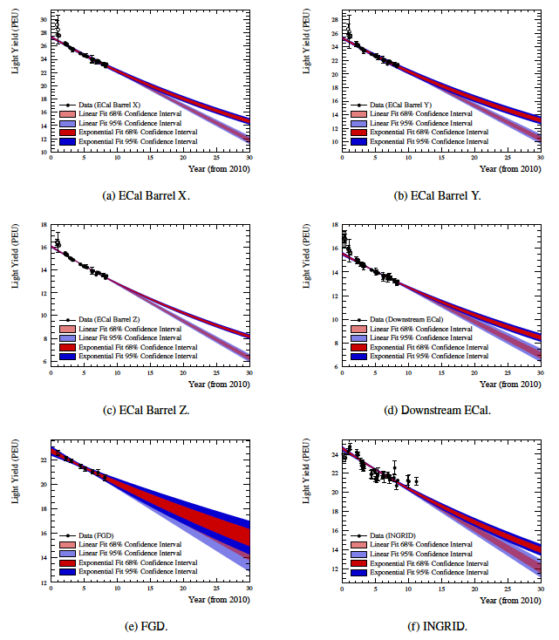August 12, 2022
The T2K experiment widely uses plastic scintillator as a target for neutrino interactions and an active medium for the measurement of charged particles produced in neutrino interactions at its near detector complex. Over 10 years of operation the measured light yield recorded by the scintillator based subsystems has been observed to degrade by 0.9–2.2\% per year. Extrapolation of the degradation rate through to 2040 indicates the recorded light yield should remain above the lower threshold used by the current reconstruction algorithms for all subsystems. This will allow the near detectors to continue contributing to important physics measurements during the T2K-II and Hyper-Kamiokande eras. Additionally, work to disentangle the degradation of the plastic scintillator and wavelength shifting fibres shows that the reduction in light yield can be attributed to the ageing of the plastic scintillator.

arXiv preprint: https://arxiv.org/abs/2207.12982
Data release: https://doi.org/10.5281/zenodo.6783269
DOI: https://doi.org/10.1088/1748-0221/17/10/P10028
Reference: JINST 17 (2022) 10, P10028



